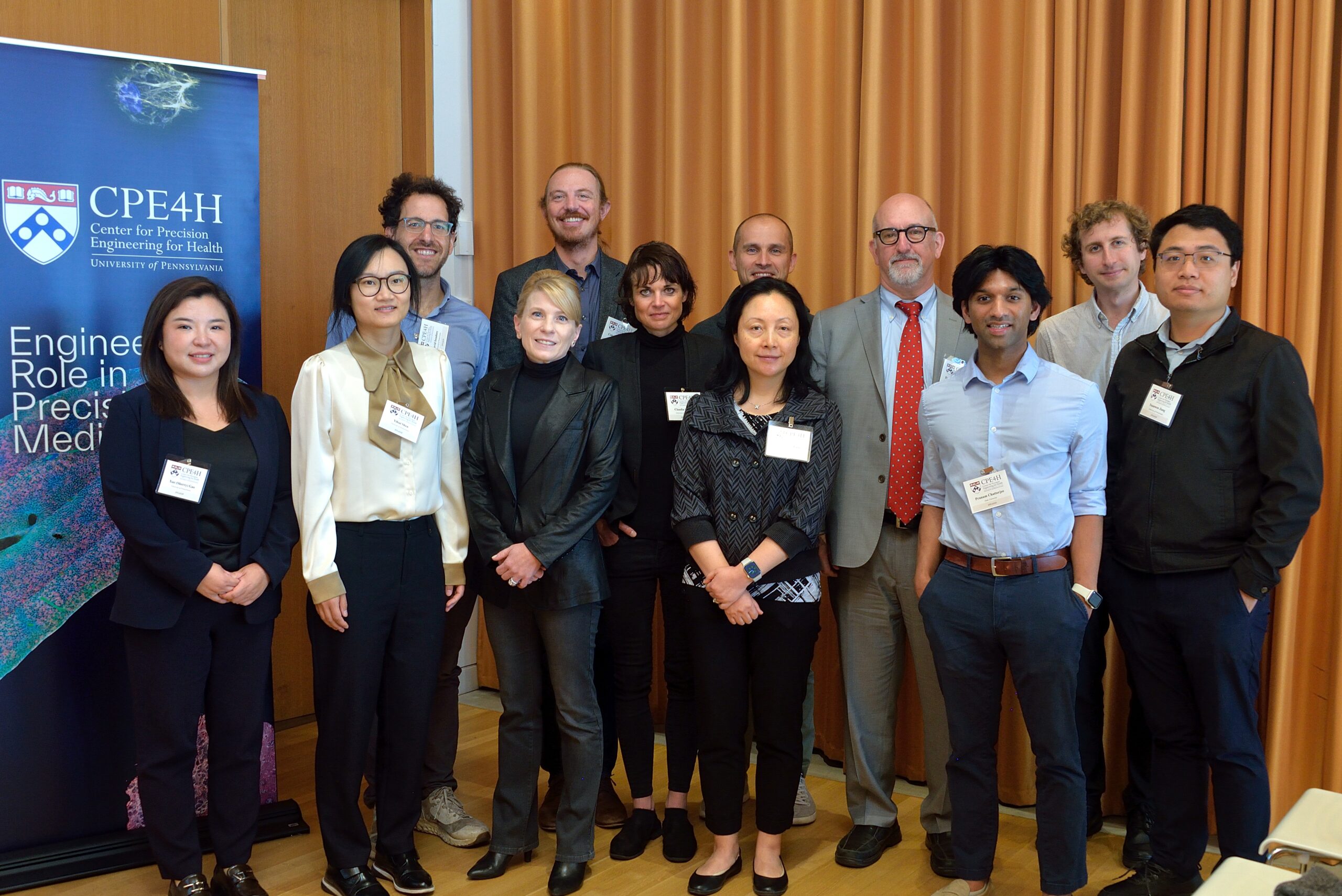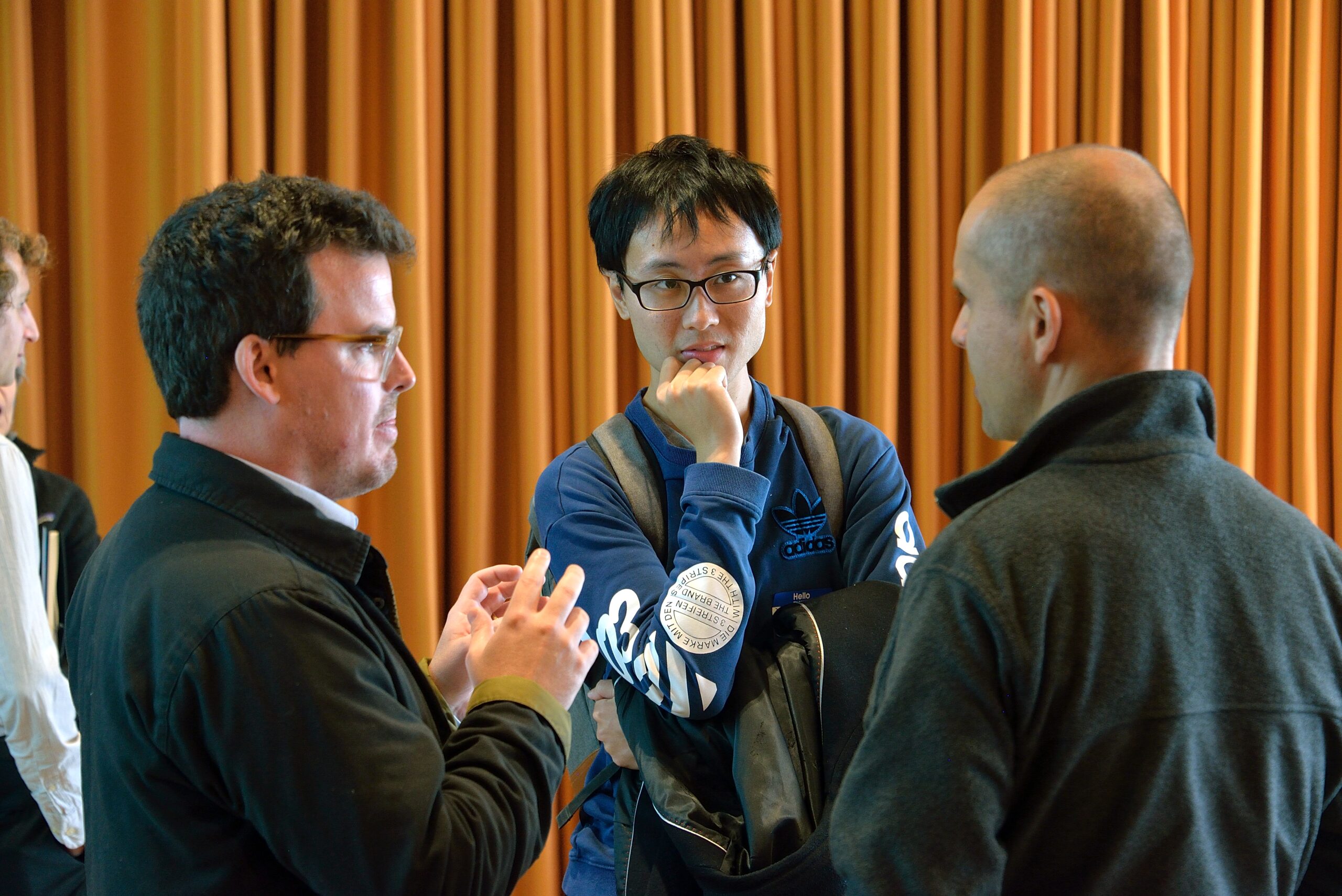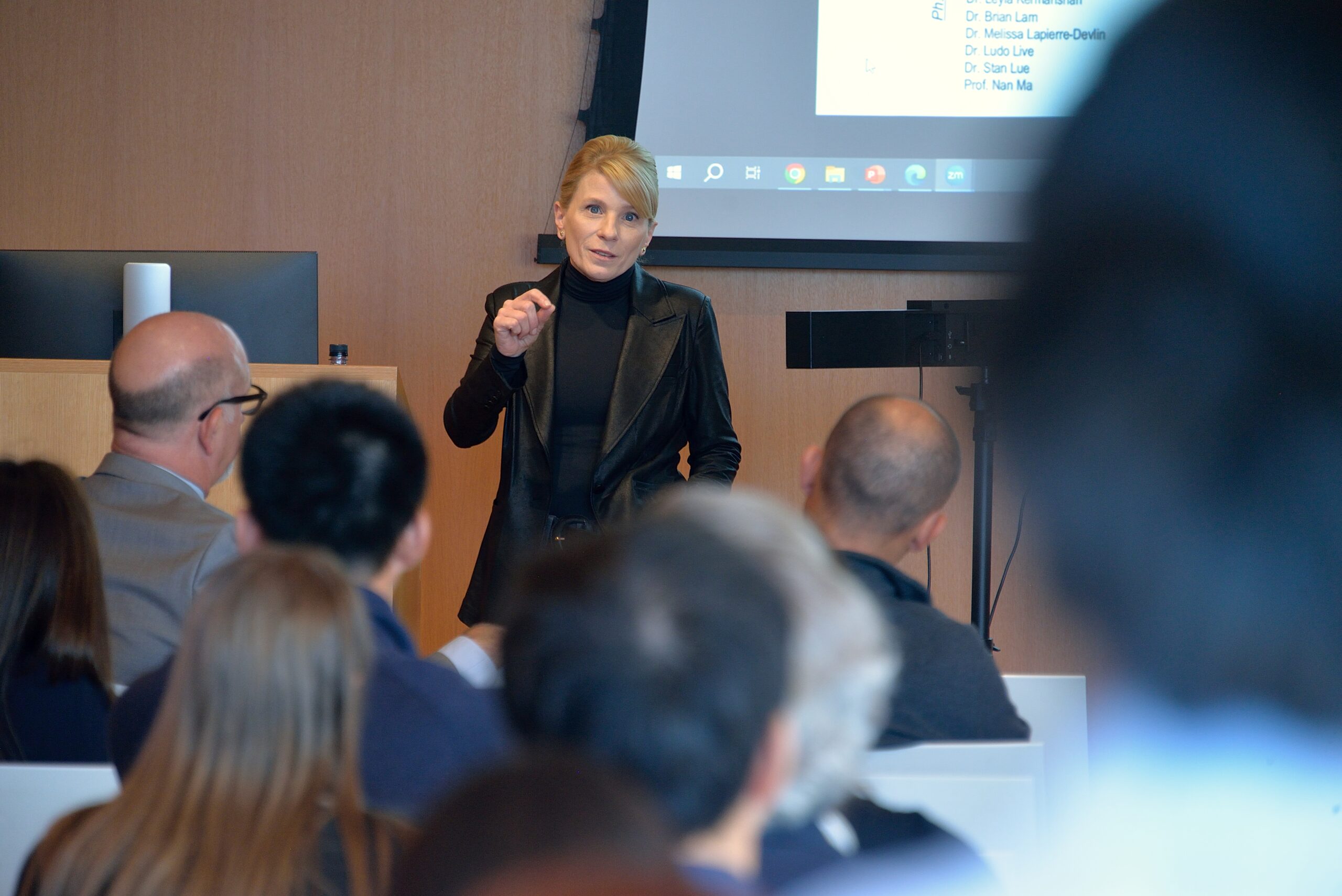
Novel molecular and cellular therapies are being discovered and optimized through interdisciplinary approaches across medicine and engineering. Thanks to this concerted effort, technologies such as mRNA, wearable devices and tissue regeneration have gone from idea to reality, and the University of Pennsylvania, specifically the Center for Precision Engineering for Health, or CPE4H, is at the forefront of this push for collaboration.
CPE4H brings together a synergistic group of scientists at Penn working at the intersection of engineering and medicine, with the goal of developing quantitative tools, devices and strategies that will directly contribute to improvements in human health. On November 8, CPE4H hosted its first inaugural symposium, which showcased current innovative work from the members of the Center at Penn, and also research from scientists at The University of Washington, Duke University and Northwestern University.
Opened and moderated by CPE4H’s inaugural Director Daniel A. Hammer, Alfred G. and Meta A. Ennis Professor in Bioengineering and Chemical and Biomolecular Engineering, the symposium was hosted in the Center’s new home, One uCity.
“CPE4H’s interdisciplinary projects across medicine and engineering are allowing tools from each field to improve the other,” says Hammer. “Through innovations in materials science, nanotechnology and molecular design, engineers are giving medical practitioners unprecedented tools to understand and intervene in the mechanisms of disease at their most fundamental levels.”

From tissue engineering to new diagnostic technologies, protein design and applied immunology, the day’s 17 symposium speakers addressed long-standing medical challenges through the lens of engineering and innovative problem solving. They shared their research working towards new medical breakthroughs, including everything from creating biocompatible hydrogels to help regenerate tissue, to designing generative language models to design novel peptides for personalized medicine.

Looking ahead, CP4EH researchers and their collaborators stand on the precipice of what is possible for the future of medicine. One day, implantable devices will be used to track and treat inflammation in the body as it is happening, genome-editing techniques such as CRISPR will treat unique diseases and conditions with true personalization, and our understanding of the metabolism from a cellular to a tissue level will be leveraged to stop tumors in their tracks.
These new forms of personalized and body-aligned treatments and devices are not far from reality. The continued growth of CPE4H and its annual symposium will ensure that experts and early-career researchers alike are able to come together and collaborate on projects that push the boundaries of engineering and medicine, tackling challenges and providing solutions only possible through this interdisciplinary work.
Stay updated with CPE4H by visiting their website here.
